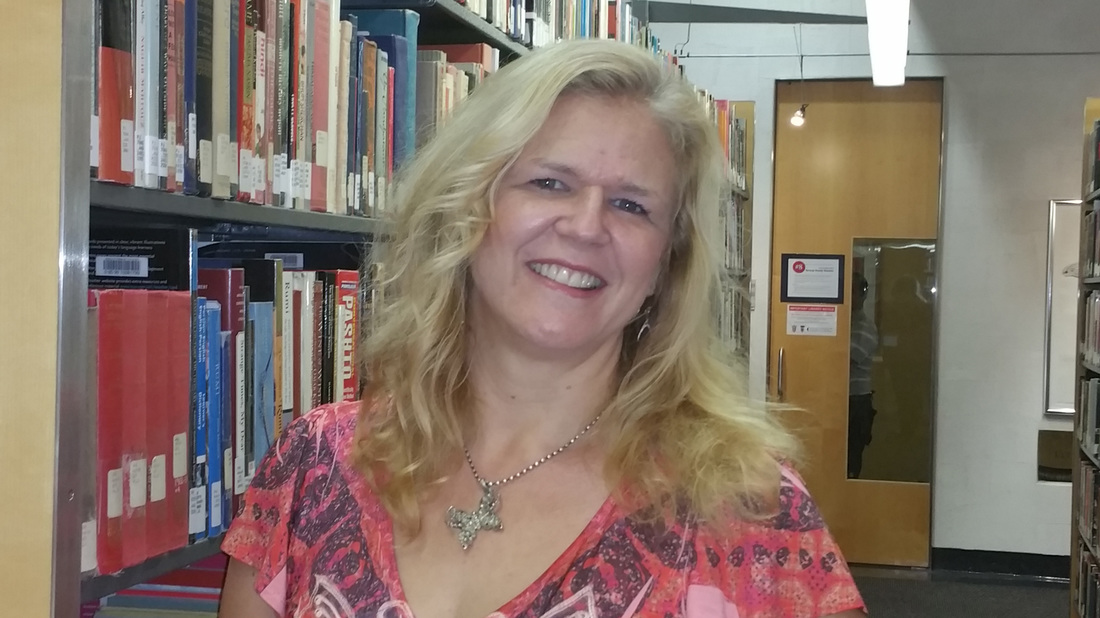|
I'm excited that David Munoz has asked me to tend to this corner of Peregrinos. My idea is to use this space to publish creative works in English, and, in doing so, let the writing show how language and words create bridges between everything--cultures, individuals, social structures. Todo.
I begin this space with some of the poems that were published in Peregrinos in October 2015. I repeat this publication to establish a beginning framework for the Vocales y Puentes section ofPeregrinos. Vocales y Puentes means 'Words and Bridges.' By nature, I am an adventurous and curious person. (I write this on a day that I'm departing for a new part of the world --Polynesia.) In my travels I have found it crucial to observe and listen and see who and what is around me, and then determine how I can meet these differences with respect and humility. What I have also found, however, is that this process is equally useful at home--out in public or in the classrooms where I teach. In such an incredibly turbulent time in our world, I wonder, "How can we meet each other with grace and sincerity and even love?" For whatever reason, I have been able to express much of my meeting points through writing, and most specifically through my poetry. I think most writers do this, too, but each writer's meeting point can be different. Hence the need for multiple voices and perspectives. Because of this opportunity that David has afforded me, I hope to make a kind of e-anthology, collecting these voices in a single place, representing in English the kind of breadth and beauty that still inhabits our world, even if it's hard to see. And sometimes, in order to see the beauty, we must also consider the hardness and hardships, and I hope to do that here, too. Thanks for your interest in what is here and in what is to come. Kimberly *** Mexican Postcard Why did I choose this one? Something Where every color, to hold onto, every shape, line, every the edges blue like seawater, and every turn in the card has time I’m afraid of meaning and significance. leaving, I am Orange jaguar dream, orange jaguar I am afraid of staying crouched in I am afraid of losing the turquoise field, I am afraid of being half-feline, half-human wearing lost. I am afraid of that wavy frown, sitting on forgetting. And I am afraid to remember that throne, waiting for the secret that’s only whispered: colors in Mexico are alive, which comes while I’m standing on the steps of Toniná looking over the whole empty emerald world. México Shining: A Poem in Four Parts I. Comal Rising This time México turned north and arrived wafting through the sun across the concrete one Tuesday afternoon in September. How rich the word: copal. In the daylight, it smells of darkness, of Maximon in the cave, an effigy in striped pants propped against the altar, surrounded by candles blinking. In the cave, the copal leads to pox. Hours later, it enters the mouth, sits on the tongue like fermented honey, like love that will not leave. When I close my eyes, the copal becomes the chain kissing the thurible as Father readies the air. II. Mé-xi-co Shining Metl = agave. Xictli = the navel. Co = within. Agave is the navel within. The navel within is made from agave. Within agave the navel forms. México is the agave is the navel within the agave and also Metlxictlico, the center in which the sweetness forms and thrives. III. One Day It all floated towards me at once--copal rising and México shining from my view at the top of Toniná. I said, Love, this is it. Es todo. But he was gone. Already departing, stirring up the sleeping butterflies as he strode through the grass. Alone, I had the white and spinning wings, the day moon, pale and arcing acres of green. I had the sun and the wide, wide air that tasted blue. I had the new memory of my love and it, too, came shining. IV. Red Galactic Moon On the 27th day of September in 2011, on 8 Muluc in the Tzolkin calendar—day of the Red Galactic Moon—day 12.19.18.13.9 in the long count, México arrived in New Mexico as it does daily. This time, blue feathers fanned out from his head and goat hoof shakers hugged his calves. He twisted his inner thigh to let his skin touch the fire showing the world how to burn without singeing. Old Lesson Mexico rose wet with ash. Every day, new words were given to me across counters and grocery aisles, words like: ¡Mira! And justo llegamos. And no, which is the same in both languages, but the vowel comes across the palette in Spanish, brushing the nose. In English, it’s only a matter of lips. Solo works similarly. In either language, you are alone (estás solo), but in Spanish it’s a whisper and the tongue touching teeth. In English, the words start the same way but then the jaw collapses and the throat invades the mouth. In English, if you are solo, you’re simply alone, but in Spanish, using a different verb, eres solo, you’re not only alone, you’re also unattached, single, and very not married. © Kimberly Williams
0 Comments
Leave a Reply. |
Kimberly WilliamsKimberly has been fortunate to travel to half the Spanish-speaking countries in the world by the time she was forty. As a traveler into different cultures, she has learned to listen ask questions, and seek points of connections. This page is meant to offer different points of connections between writers, words, ideas, languages, and imaginations. Thank you for visiting. Archives
October 2020
|

 RSS Feed
RSS Feed